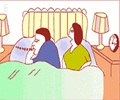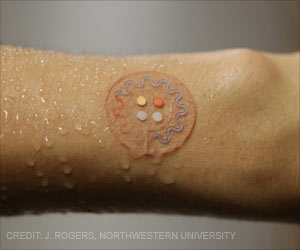How does loneliness affect your sleep? Research shows that loneliness can lead to nightmares, disrupting sleep and increasing risks to overall health.
- Loneliness is linked to more frequent and intense nightmares
- Stress, rumination, and hyperarousal are key factors connecting loneliness to poor sleep
- Addressing loneliness might help reduce nightmares, but further research is needed
Loneliness can trigger the brain's 'fight or flight' response, making you more likely to have intense nightmares! Your brain might be keeping you on high alert-just in case! #mentalhealth #sleepwell #medindia’
Link Between Loneliness and Nightmares
In a report published in the Journal of Psychology, Hesse and colleagues from the University of Arizona, the University of Tampa, and Whitworth University argue that stress plays a role in the relationship between loneliness and nightmare frequency and intensity (1✔ ✔Trusted SourceInterpersonal Loneliness Predicts the Frequency and Intensity of Nightmares: An Examination of Theoretic Mechanisms
Go to source). Other factors linking loneliness to dreams appear to be rumination (concern and anxiety) and hyperarousal, which is defined as being extremely attentive and concentrated. Mind states related to loneliness include worry, rumination, and hyperarousal.
Sense of Belonging is Crucial For Human Survival
In addition to shedding insight into the possible negative effects of insufficient human connection, the findings of the study conducted by Kory Floyd of the University of Arizona are consistent with the evolutionary theory of loneliness, which holds that a sense of belonging is necessary for human survival.How Isolation Impacts Sleep Quality and Triggers Nightmares
Loneliness is a pervasive illness that severely impairs wellness, according to the study, causing suffering in a variety of ways, including poor sleep. Nightmares are one manner in which sleep quality is compromised.The authors' results linking loneliness to nightmares - in a correlative rather than causative fashion, Hesse emphasizes - are based on surveys of more than 1,600 persons in the United States ranging in age from 18 to 81. The findings also provide an evolutionary explanation for dreams, suggesting that humans evolved to experience stress, rumination, and increased awareness when lonely, rather than external variables such as trauma.
"It's too early to talk about specific interventions in a concrete way," Hesse said, "but our findings are certainly consistent with the potential that treating loneliness could help reduce someone's nightmare experiences. That is something that may be addressed in controlled clinical research."
The Sleep Foundation estimates that 50 million to 70 million Americans suffer from sleep disorders. "Quality restorative sleep is a linchpin for cognitive functioning, mood regulation, metabolism and many other aspects of well-being," said Hesse. "That's why it's so critical to investigate the psychological states that disrupt sleep, loneliness being key among them."
According to the US Surgeon General's Office, even before COVID-19, roughly half of American adults reported measurable degrees of loneliness, and a lack of connection is on par with smoking in terms of increasing the risk of early mortality.
How Loneliness Affects Health
The Surgeon General's Advisory on Our Epidemic of Loneliness and Isolation provides the following statistics:- A 29% higher risk of heart disease.
- A 32% higher risk of stroke.
- Older persons face a 50% greater risk of developing dementia.
- There is a greater than 60% likelihood of premature mortality.
Reference:
- Interpersonal Loneliness Predicts the Frequency and Intensity of Nightmares: An Examination of Theoretic Mechanisms - (https://www.tandfonline.com/doi/full/10.1080/00223980.2024.2378418)










